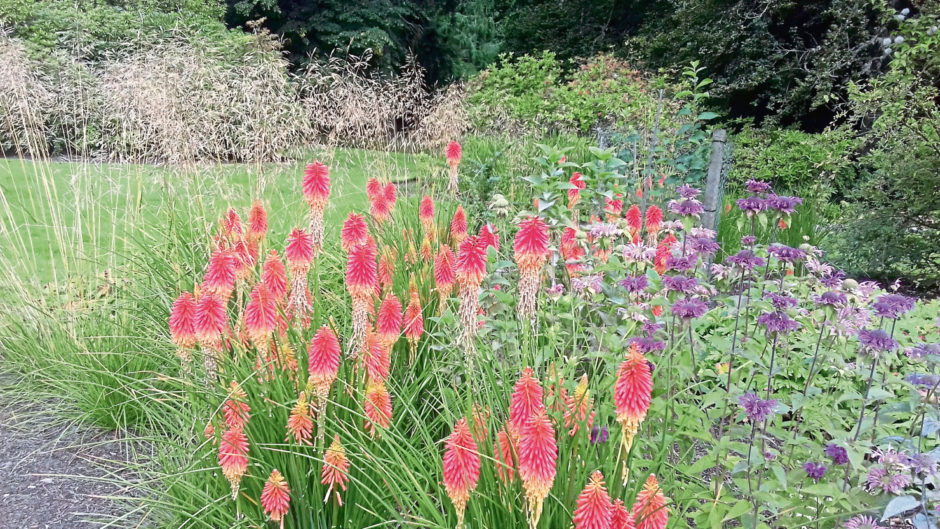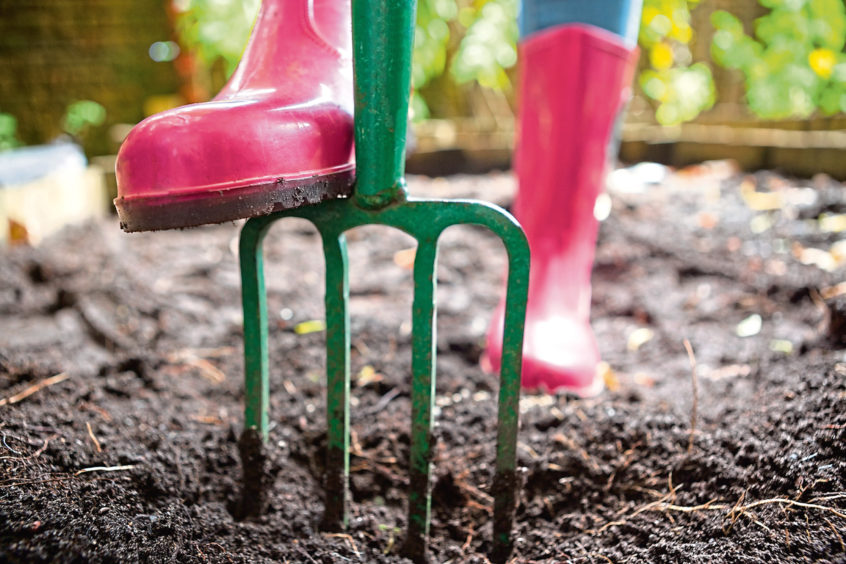We may not be living in the best of times, but we can still take pleasure in simple things, Brian Cunningham says.
It’s very pleasing to see so many people turning to gardening as a way to fill their newly-given time at home.
Families are using gardening as a way to spend time together and keep physically active and, of course, Courier Country gardens can only benefit. There is a downside though – unfortunately this coincidental boost for the horticultural industry comes at a time when garden centres and are having to keep their doors temporarily closed.
The spring market is peak season for the horticultural industry, which includes many family-run businesses of growers and plant nurseries who have spend months growing bulbs, bedding and pot plants.
Sadly, due to lockdown, they could now see vast amounts of their stock written off. The Horticultural Trading Association estimates the industry could potentially suffer a loss of £687 million through lost plant sales by the end of June. Thankfully, due to true gardener resilience, many local growers and garden centres in our area are finding a way to keep calm, and garden on through online sales and doorstep deliveries. If you can, please support these businesses in this difficult time by continuing to buy from them.
On the plus side, it seems many people already are and some centres have been inundated with orders. Naturally deliveries have to follow strict government guidelines and these centres have their staff safety to consider, so a little patience (an essential requirement for a gardener) may be needed if you are waiting for an order to be delivered.
Just fast forward to August, picture yourself on a beautiful sunny, summer’s day, sipping on an afternoon cup of tea (or maybe even something slightly stronger) with your garden at the peak of its display.
The wait will all be worth it.
During early spring we do have an opportunity to fill any gaps we may have in our borders by dividing some of our existing plants. Herbaceous perennials such as grasses, clump forming iris, rudbeckia and geranium are those that generally make up the summer colour in our gardens, besides trees and shrubs.
The foliage above ground will die back from late autumn and is then destined for the compost heap, while the plants underground will take a well-earned rest over the winter months before reaching out of the ground again in spring to begin the cycle all over again.
To keep our herbaceous perennials healthy and growing strongly it is best to dig them up and divide them every two to four years, just when the plants are starting to grow again. It’s at this point you may observe the centre of the clump you are looking to work on is bare, with more growth appearing on the edges of the plant.
The centre would have been the plant you started off with that’s now died, and the plant has continued to expand outwards, it’s this growth that we want to focus on, being the youngest and most vigorous that will produce the strongest new plants.
Using a garden fork, go around the edge of the plant you wish to divide, gently teasing it out of the ground, then set to one side. If you are replanting in the same site then take the opportunity to improve the soil by forking in some organic matter, be it a bag of new or spent compost, compost from your own heap, leaf mould or some well-rotted manure.
Dunt and shake the clump to free excess soil away from the roots. Pulling apart causes less damage, though you may find you need to use a spade to slice the plant into good-sized pieces, each with around three to five new green shoots, ensuring they have an equally good root system. Give your new plant a wee clean-up before popping in the ground straight away, to the same depth as before, gently firming around the plant to settle the soil among the roots giving them a good watering from a can fitted with a rose.
If you only have a limited amount of organic matter, instead of digging it into the soil it would be more efficient to use what you have by applying a 7cm layer of mulch around your new plants. This will help retain the moisture for longer which is essential for helping your new plants to establish. Keep your plant well watered during this first season.
Some plants such as hemerocalis, the day lily, produce dense clumps of fibrous roots that may require a bit more effort to divide rather than the method described above.
Two garden forks will be required, placed back to back in the centre of the plant and levering them both backwards and forwards to separate it into pieces. Not many of us keep more than one garden fork, so if you need to ask your neighbour to borrow theirs, as thanks you could gift them one of your new plants.
Why not go a step further and swap plants with all your neighbours? Have you any spare seeds or grown too many plants? Don’t throw them out, get together on your street and share what you all may have. Embrace the gardening spirit during lockdown.
Brian Cunningham is a presenter on BBC Scotland’s Beechgrove Garden and head gardener at Scone Palace. Follow him on Twitter @gingergairdner
Please follow government guidelines in all outdoor activities.












